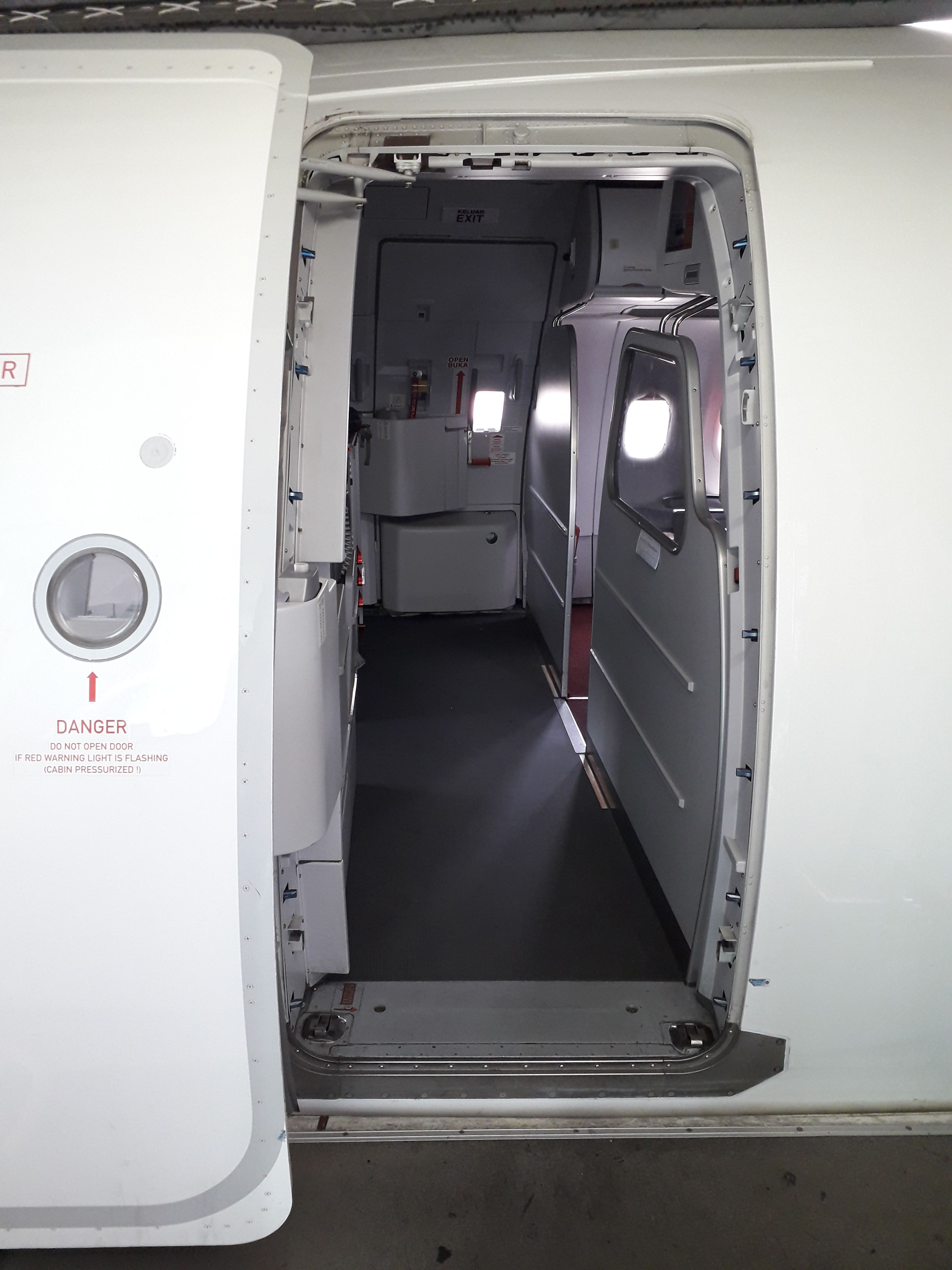The Transportation Safety Bureau of Hungary (KSBZ) released its report on a 2019 diversion of an Aeroflot Airbus A320 flying from Belgrade to Moscow. The incident saw smoke and burning odor in the front cabin and cockpit, forcing the pilots to make an emergency landing at Budapest Airport. The report found that the incident was caused by a known issue in the aluminum skin heated floor panels that caused them to overheat.
Known issue
According to AvHerald, the KSBZ (Közlekedésbiztonsági Szervezetet in Hungarian) released its report on Friday. In it, the agency detailed what went wrong onboard, causing the burning odor and smoke, and why the front door (L1) was at over 50 degrees celsius (122F) after landing. These can be traced back to the aluminum skin heated floor panels.
At the time of the incident, February 3rd, 2019, both the airline and manufacturer knew of the defect in the panels. Indeed, as the floor undergoes mechanical damage or corrosion, it becomes susceptible to a short circuit of the heating elements, causing a spike in temperature. This is what occurred onboard the Airbus A320, registration VP-BMF, in 2019, forcing the plane to reduce altitude and divert just minutes into its flight.
The short circuit caused the floors to far exceed normal temperatures and cause the smoke and burning odor at the front of the cabin and cockpit. The crew reacted quickly and landed in Budapest, where passengers safely exited the plane and it spent time on the ground undergoing repairs. Since this occurred before Russia's invasion of Ukraine, it was unsurprising to see Aeroflot flying to the European Union and other Western nations.
Get the latest aviation news straight to your inbox: Sign up for our newsletters today.
No safety directive
After the malfunctions were found, crew instructions were amended to include instructions on using the circuit breaker present in the front galley controls. This shuts down the heating panel and prevents further damage to the floor and lowers the risk of smoke. The report notes that it does not plan to issue an airworthiness directive to order a switch from aluminum skin panels to the safer titanium skin ones, saying,
"In IC’s [investigators] opinion similar failures could occur in the future, despite the fact that they are known to the manufacturer and operators. However, as regards the replacement of aluminium panels with titanium skin panels, the operator is the cost-bearer and its replacement is not mandatory, so the IC’s opinion is that the decision of the operator will be based on financial considerations. The probability of a more serious outcome than the failure in the present incident is low, but the cost of replacing the floor panel is high, and therefore the operator has presumably considered the possible risk to be negligible."
Effectively, regulators are passing on the financial risk to operators. Given the low risk of a fire or serious damage, and the presence of a simple solution, the regulators are not planning an airworthiness directive. However, future aircraft will move toward titanium skin floors to keep passengers safe and prevent such incidents.
Source: AvHerald



